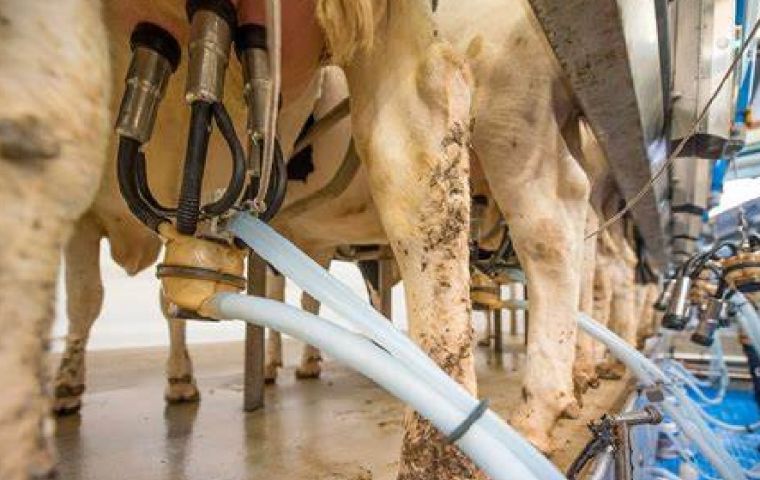MercoPress. South Atlantic News Agency
Denmark plans to tackle animal gas emissions with a livestock tax
 Dairy farming is believed to contribute greatly to the production of human-related greenhouse gases
Dairy farming is believed to contribute greatly to the production of human-related greenhouse gases Denmark's coalition government agreed this week to tax livestock owners the equivalent of US$96 per head per year from 2030 due to greenhouse gases produced by animal flatulence, Tax Minister Jeppe Bruus announced. The move on cows, pigs, and sheep is expected to result in a 70% reduction from 1990 levels by the end of the decade on the path to carbon neutrality, Bruus explained. “We will take a big step towards climate neutrality in 2045,” he emphasized. The tax is expected to be approved by Parliament later this year.
Farmers will have to pay a tax of 300 crowns (US$ 43) per ton of carbon dioxide produced by their animals. However, this will initially be subject to a 60% income tax deduction, it was explained. The move is expected to hit dairy farmers the hardest, given that the average Danish cow produces around six metric tons (6.6 tons) of CO2 equivalent each year, and pigs and sheep emit significantly less gas. The new progressive tax would reach $107 by 2035.
According to the United Nations Environment Program, livestock farming accounts for around 32% of methane emissions caused by human activity, and around 12% of global emissions in 2015, according to the Food and Agriculture Organization (FAO). Methane is a powerful planet-warming gas produced by cows and some other animals through their belches and manure.
The country will also invest almost $3.7 billion in reforestation and establishing wetlands. “With today's agreement, we are investing billions in the biggest transformation of the Danish landscape in recent times,” Foreign Minister Lars Lokke Rasmussen said in a statement. ”At the same time, we will be the first country in the world to apply a (carbon) tax on agriculture.”
The move comes just months after farmers held protests across Europe to protest excessive environmental regulations.




Top Comments
Disclaimer & comment rulesCommenting for this story is now closed.
If you have a Facebook account, become a fan and comment on our Facebook Page!